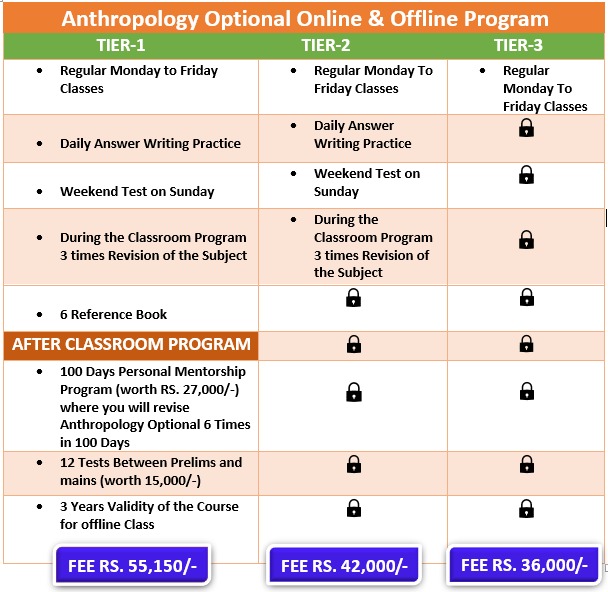
Anthropology Case Studies
Anthropology is the study of humans, including their cultures, societies, and how they have evolved over time. One way to learn more about these aspects is by using case studies. Case studies focus on specific communities, events, or situations, giving us a deeper understanding of how people live and interact.
You can get the book here Paper 1 :- https://www.amazon.in/dp/B0D81ZJHX7
The Significance of Case Studies in Anthropology
1. Illustrating Theoretical Concepts
Case studies help explain theories by showing how they work in real life. For example, studying how a specific tribe's family system works can give a clear idea of theories about family and social structure.
2. Providing detailed Understanding
Case studies give a deep and detailed look at a topic. They capture the small details and unique aspects that broader studies might miss. This helps us truly understand the variety of human cultures.
3. Enhancing Cultural Sensitivity
By studying different cultures closely, case studies help us become more aware and respectful of cultural differences. This is especially important in today’s connected world.
4. Informing Policy and Practice
Anthropological case studies offer useful insights for creating better policies and solutions. For example, studying how a development project affects an indigenous community can lead to more respectful and effective ways to help them.
Types of Anthropological Case Studies
1. Descriptive Case Studies
Descriptive case studies provide a detailed account of a particular community or event. They describe the social, cultural, and environmental contexts in which the subject exists. For example, a descriptive case study might explore the daily life of the San people in the Kalahari Desert.
2. Explanatory Case Studies
Explanatory case studies seek to explain the reasons behind certain phenomena. They delve into the causes and mechanisms of social and cultural practices. An explanatory case study might investigate why certain cultural rituals persist in modern urban settings.
3. Exploratory Case Studies
Exploratory case studies are used to investigate new areas of research or generate hypotheses for further study. These studies are often the preliminary phase of a larger research project. An exploratory case study might look at the impact of digital technology on traditional communication practices in rural India.
4. Comparative Case Studies
Comparative case studies analyze two or more cases to identify similarities and differences. This approach can reveal patterns and variations across different cultural contexts. For example, a comparative case study might examine marriage customs among different tribal groups in Africa and South America.
Notable Anthropology Case Studies
1. The Nuer by E.E. Evans-Pritchard
This classic study focuses on the Nuer people of South Sudan. Evans-Pritchard explores their way of life, including their family systems, political organization, and economy. He also explains their "segmentary lineage system," which is how they organize their families and clans.
2. Coming of Age in Samoa by Margaret Mead
Margaret Mead's famous study looks at the lives of teenage girls in Samoa. She showed how culture shapes adolescence and challenged Western ideas about growing up, offering a fresh perspective on human development.
3. The Yanomamo by Napoleon Chagnon
Napoleon Chagnon studied the Yanomamo people of the Amazon rainforest. He wrote about their family systems, social life, and conflicts. His findings sparked debates about human violence and the ethics of studying people so closely.
4. Tristes Tropiques by Claude Lévi-Strauss
Claude Lévi-Strauss wrote about his time with indigenous groups in Brazil. He described their myths, rituals, and social structures, combining storytelling and analysis. His work introduced a new way of thinking called "structuralism," which had a big impact on anthropology.
Conducting Case Studies in Anthropology
1. Literature Review
A literature review helps you understand what has already been studied about your topic. It gives you a background, helps you build a theoretical foundation, and shows where more research is needed.
2. Fieldwork
Fieldwork is an important part of anthropology. It means collecting information directly by spending time in the community you're studying. This can involve observing their daily life, talking to people, and using other methods to gather data.
3. Data Analysis
After collecting the data, the next step is to study it closely. This involves organizing the information, looking for patterns or themes, and linking it to anthropology theories to make sense of it.
You can get the book here Paper 2 :- https://www.amazon.in/dp/B0D8WNCJVZ
How Vijetha IAS Academy Integrates Case Studies
1. Expert Guidance
At Vijetha IAS Academy, anthropology is taught by renowned faculty, including NP Kishore sir, who brings extensive knowledge and practical experience to the classroom. With a double master’s from the UK and a background in various multinational companies as a scientist, Kishore sir offers unique insights that enrich the learning experience.
2. Comprehensive Study Material
Vijetha IAS Academy provides meticulously curated study materials that include detailed case studies and their analyses. These resources are designed to help students understand complex concepts and apply them effectively in their answers.
3. Interactive Learning
The academy’s interactive learning approach encourages students to engage with case studies actively. Through discussions, group activities, and presentations, students develop a deeper understanding of the subject and enhance their analytical skills.
4. Practical Application
Students are encouraged to apply the theoretical knowledge gained in the classroom to real-world situations through case studies. This practical application helps in better retention and understanding of the subject.
5. Regular Assessments
Regular test series and personalized feedback at Vijetha IAS Academy ensure that students continuously evaluate their progress. Detailed feedback helps identify strengths and areas for improvement, enabling aspirants to refine their approach and excel in the UPSC examination.
6. Holistic Support
Vijetha IAS Academy offers a holistic support system that goes beyond classroom teaching. From mentorship programs to daily answer writing sessions, the academy provides comprehensive support to help students achieve their goals.
Conclusion
Anthropology case studies are invaluable tools for understanding the intricacies of human societies and cultures. They bring theoretical concepts to life, provide in-depth knowledge, and foster cultural sensitivity. At Vijetha IAS Academy, we integrate these case studies into our curriculum to offer students a comprehensive and practical learning experience. By combining expert guidance, interactive learning, and practical application, we equip our students with the skills and knowledge needed to excel in their anthropology studies and UPSC preparation.
For more information on our anthropology courses and other programs, visit Vijetha IAS Academy. Join us and take the first step towards realizing your dream of becoming a civil servant with the best anthropology optional coaching in India.

